
As borders shut, Cambodian families struggle to survive in frontier city Poipet
In the Cambodian frontier city of Poipet, many families who depended on cross-border trade with Thailand to earn a living are facing destitution as land crossings remain closed and Covid-19 shuts down much of the global economy
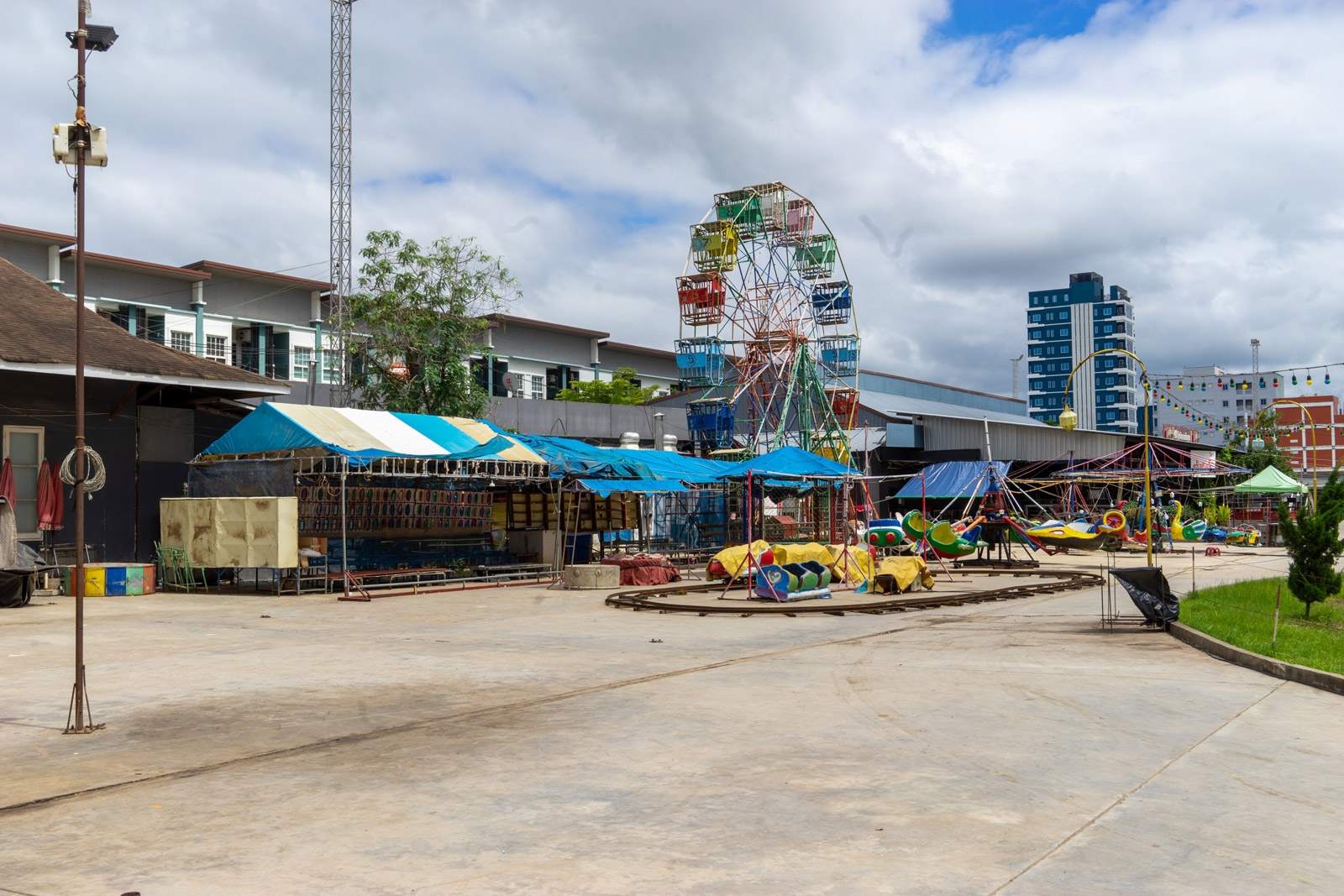
While Poipet sits less than five kilometres from Thailand’s Rong Kluea Market, it has long represented a vastly different world of comparative economic opportunity for those in the Cambodian border city.
But today, Poipet residents are lamenting the loss of the cross-border economy that once supported their community, which over the last eight months has collapsed into widespread unemployment, halted migration and food insecurity.
Poipet resident Chan Srey Neat*, who used to be able to cross the land border daily to work at Rong Kluea market, has seen her city completely change over the last eight months. Without the tourism it used to rely on, business is dead.
“The situation here has completely changed. The city used to thrive on Thai and Chinese business, but now it is so quiet. There are no jobs and we can’t afford to feed our families,” she said.
Before the border closed back in March, Srey Neat was earning approximately $6.50 per day cleaning and selling women’s designer bags. Now, however, the border is open only to a limited number of trucks transporting goods.
Srey Neat’s household income is down by over 67% compared to last year, and her husband’s night shift as a pig butcher can’t sustain their family of seven. Every month they need to borrow to survive and still they can’t afford to eat enough every day.
Srey Neat is not alone in her struggles. Although exact figures are hard to come by, Lay Voleak, Programme Coordinator at Friends International, estimates that 70% of Cambodians living in the city of more than 140,000 people are currently in debt. Increasingly, NGOs working in the area are seeing residents sell everything they own to survive as the main pillars of the city’s economy – gambling, tourism and textile production – have ground to a halt with the global shutdown.
According to a report by the Cambodian League for the Promotion and Defense of Human Rights (LICADHO), more than 2.6 million Cambodians held more than $10 billion in microloans at the end of 2019, with borrowers holding an average of $3,804 – by far the highest average microloan size in the world, and far exceeding GDP per capita or annual incomes.
Now, the economic crisis caused by Covid-19, is exacerbating pre-existing inequalities. LICADHO’s research, which surveyed garment workers who had lost work due to factory closures or suspensions between March and May this year, found that two-thirds of the workers were suffering economic hardship as they struggled to repay microfinance loans. According to the report, common coping mechanisms to make loan repayments included eating less food, digging themselves into greater debt with additional loans, and migrating in search of work.
Din Puthy, head of informal workers support group the Cambodia Informal Economy Reinforced Association, has seen this trend unfold first-hand in Poipet, and painted a dire picture of the current economic situation for many of the workers in the border town.
“Those who lost their jobs – they’ve sold their motos, their jewelry, their land, whatever they had. People are starving. Some returned to their homelands and some stayed and took out loans,” he said.
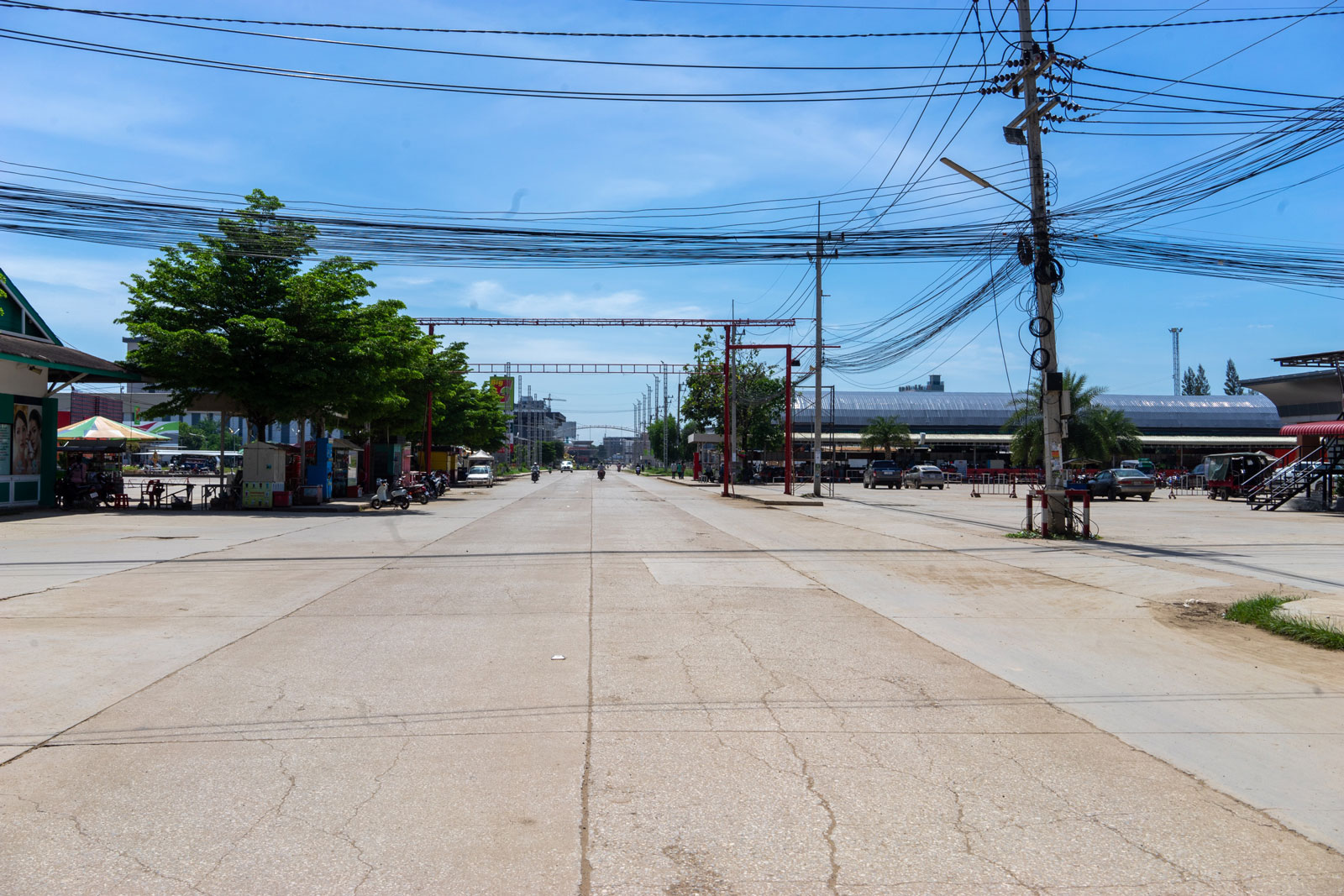
As the economy underpinning their community is wracked by economic forces beyond their control, so too have the physical structures that form it. October saw Cambodian communities nationwide hit by some of the worst flooding for decades, displacing thousands in Banteay Meanchey province and 700 households in Poipet City alone, worsening the crisis for many households already drowning in debt.
The flood waters affected 17-year-old Khun Chanserey*, who had to stay inside her small home for almost two weeks until it was safe to leave. Every day counts for Chanserey as it spells the difference of whether she can make $5 working in the local market or not to support her family.
The market job is just temporary, and she has her heart set on landing a job as a casino dealer once she’s finished school. But, at the moment, both school and casino work are out of reach. Even though her school reopened in October, she’s been unable to return because there is no school bus operating due to Covid-19 prevention measures, and the $2.50 daily journey in private transport is one she simply can’t afford.
“Every day, my friends and I pray that the authorities will allow the bus to run because we miss going to school so much,” she said.
Alongside Seiha and Srey Neat’s children, Chanserey attended school at an informal education centre run by local NGO Damnok Toek with support from international NGO Aide et Action, offering access to education for vulnerable children who otherwise would not be able to receive schooling.
Initiatives like this are built on the premise that investment in education will be key to the long-term recovery in communities like Poipet. Through improved educational opportunities, future generations may be able to attain the skills that lead to better employment opportunities and less reliance on the informal labour sector, building resilience against economic and environmental shocks like those seen in recent months.
But the impact of flood waters and Covid-19 in recent weeks and months mean that not only is Chanserey missing out on her education, she is also missing her father and brother, who migrated south to Pursat province in the early days of the pandemic in April to work on a plantation.
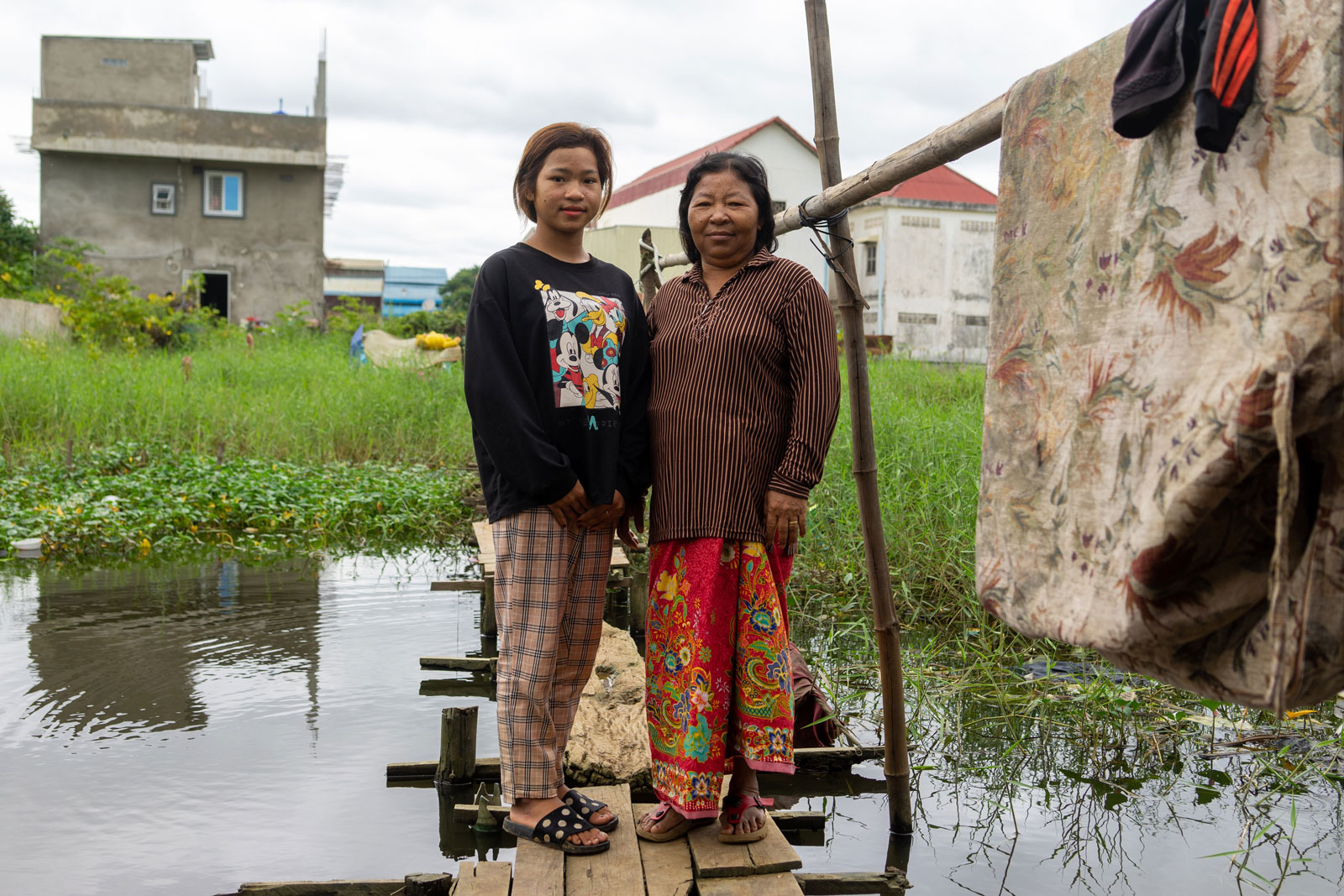
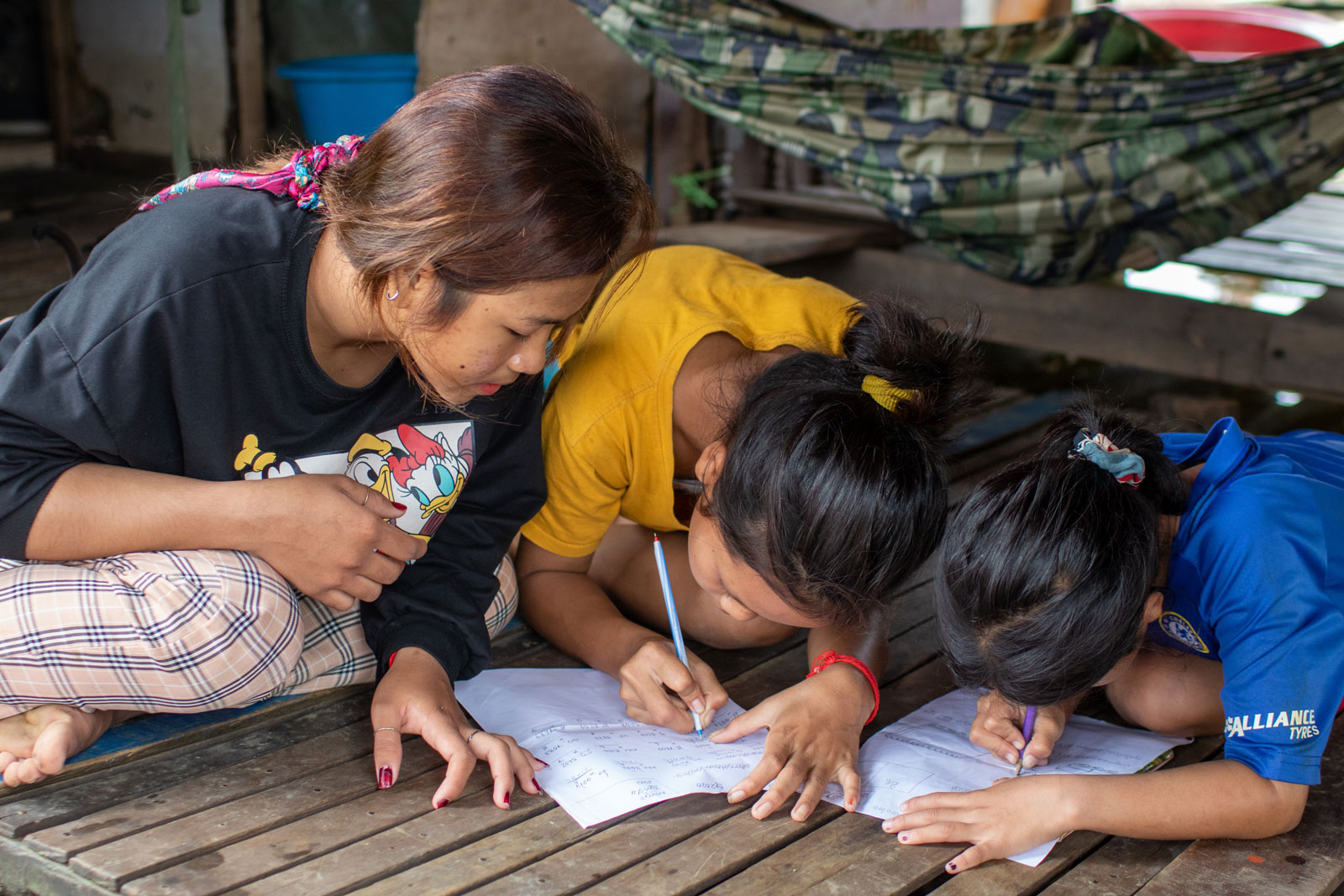
Those that worked in the casinos, almost 10,000 have no jobs now. Only some security guards are left working at the casinos. The city of Poipet has become very quiet
Farm work in rural provinces is the fallback plan for many in Poipet who have lost their jobs to border closures and the suspension of casinos, night clubs, factories, and construction sites. Bin Sophon, Women and Children’s Monitor for Cambodian human rights organisation Adhoc, estimates that approximately 10,000 people have lost their jobs in the city’s casinos, which also shut up shop in March.
“Those that worked in the casinos, almost 10,000 have no jobs now. Only some security guards are left working at the casinos. The city of Poipet has become very quiet,” she said.
While many have migrated to Phnom Penh in search of work, Sophon added that “of course there are illegal crossings [back into Thailand]” among those that depended on the Thai market for income.
Mother-of-four Sok Seiha* depended on her casino job to support her family. Having never received an education herself, her illiteracy is an obstacle to finding alternative work in an economy running on low-capacity.
Although her husband is also illiterate, there are heavy lifting jobs available in Thailand for Cambodian men like him who are willing to risk the now-illegal journey. In April 2020, when he lost his construction job in Poipet, he felt he had no choice but to sell the family’s smartphone and other valuables in order to pay a smuggler’s fee and get across the border.
“I used to have a smartphone but I sold it in April so my husband could cross the border. Before Covid-19, my life was better, my husband and I had jobs but now it’s not easy, I’m struggling to even have enough food”.
Despite land borders being closed, there have been reports of migrants crossing at unofficial points of entry, often involving illegal recruiters like the one Seiha’s husband used.
With few options to earn a living, those who can come up with the $110-150 recruiter’s fee are taking the risk to cross the border in search of work. This is part of a trend for cross-border communities worldwide during the pandemic, cut off from jobs and customers.
“They need to risk it, what better choice is there?” Bin Sophon puts it bluntly.
Now, Seiha’s husband is working transporting goods in a Thai market and making twice what he earned as a construction worker in Cambodia. Once a week, Seiha borrows her sister’s phone to talk to her husband, and once every two months, her husband sneaks back across the border to visit his family for a few days.
Inevitably, reentering Cambodia from Thailand comes with both legal and physical risks, with arrest, detention and fees all inevitable if caught making the crossing by authorities. October’s heavy rains and extensive flooding brought problems for returning migrants, too. At one point of entry – O’Beichoin – frontline immigration officers had to be moved to safe ground as the border point went underwater. As many as 350 migrants per day return through this point using boats if they can afford the fee, swimming across if not.
According to an IOM report, as of October almost 120,000 migrants have returned to Cambodia from overseas, with reports that many more will arrive once the borders reopen. Thousands of these were Cambodian nationals working in Thailand, forced to return after the border was shut on March 23. Inevitably, those who have returned must find work on their side of the border – usually in agriculture – but with a devastated economy and increased competition, there remains no guarantee of long-term employment.
As Hun Ren, Field Officer with Samaritan’s Purse International Relief Cambodia, points out, seasonal farmwork can only last so long.
“Some of the common jobs for the Cambodians that returned from Thailand were rice harvesting or potato growing and harvesting. But, once the harvest is over, they will have no more work,” said Ren.
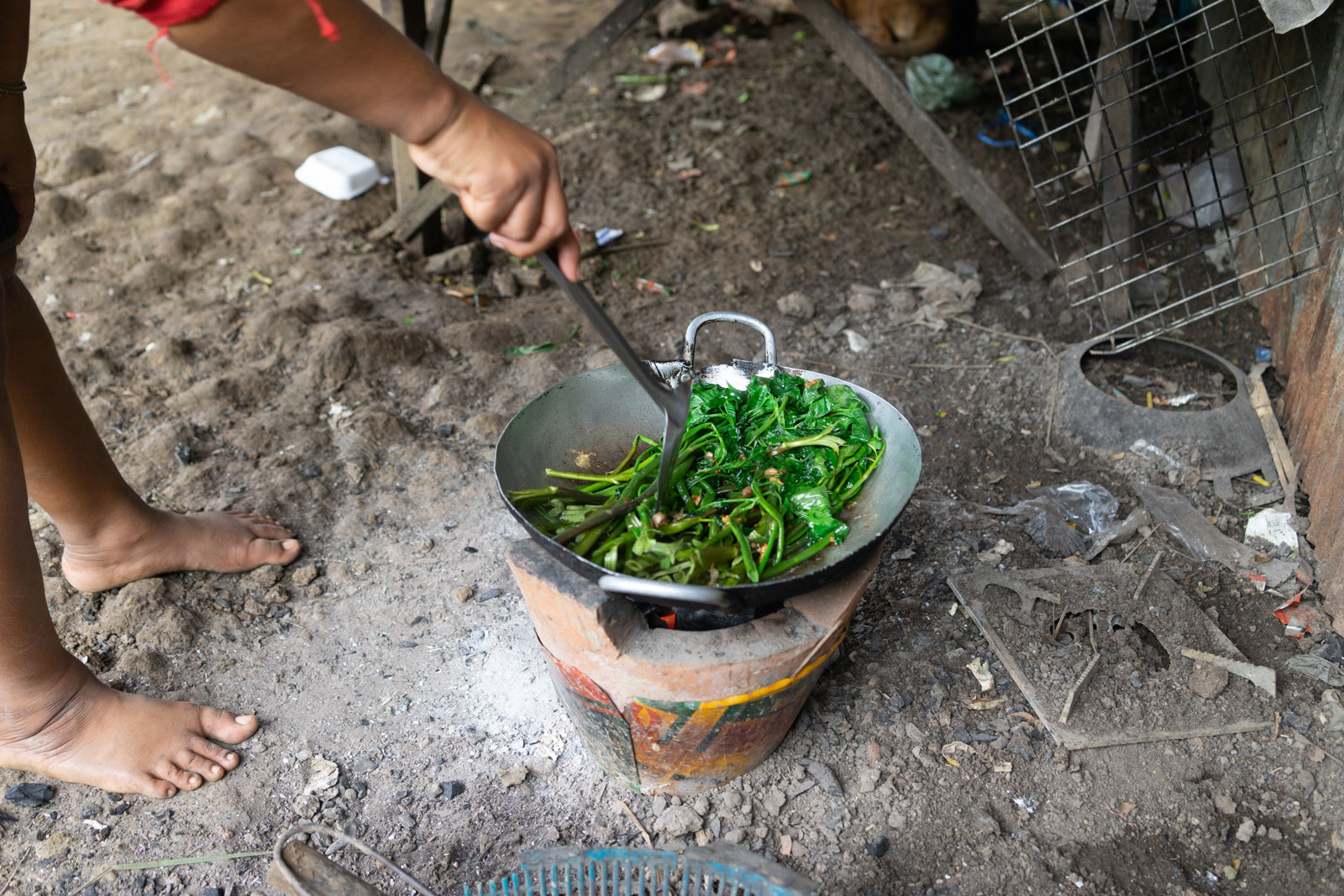
Korn Nakrong, Head of Independent Democratic of Informal Economic Association (IDEA) is concerned about the future of the city’s most vulnerable if the situation fails to improve. While the government and local authorities have provided some support to those officially recognised as poor and holding ID cards, as well as those affected by floods last month, many people are still struggling.
According to Nakrong, those who work in informal sectors are not able to access the identification they need to receive support. IDEA has been advocating for them to get IDs, but during this time other charities and donors – local and international – have had to step in to provide emergency food supplies.
“Only one casino paid their staff 50% for three months when they closed, no other casino workers received compensation,” he said. “There is no intervention from the government at all except for the IDed poor. Those who work in informal sectors are not able to access IDs.”
Even distributing supplies was challenging at first according to Nakrong, as authorities tried to stop distributions for fear of informal workers gathering in groups and mobilising.
While Covid-19 has not claimed any lives in Cambodia to date, the lost livelihood count is rising. In Poipet, Nakrong estimates that 60-70% of people have now lost their jobs. With little to no education and skills, options are limited and he recognises the futility of the situation for most workers.
“I don’t see signs of recovery yet. It looks like people have no skills, so what can they do? They don’t have land to grow rice even,” he said. “Some go back to their homeland or change their jobs from construction to morning glory harvesting. Maybe not even to earn money, but just to eat.”
*Names of children and vulnerable persons have been changed. This article has been written by Aide et Action, as a part of a partnership with Southeast Asia Globe to highlight the need for equal access to education in the region. Find out more here

